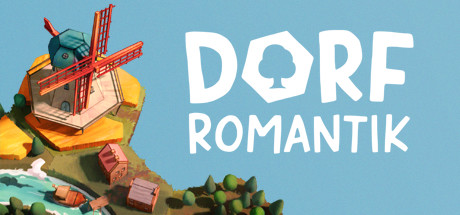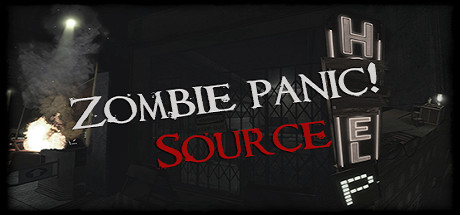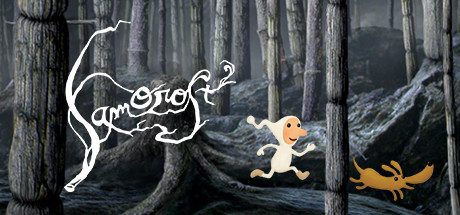Dorfromantik Reviews
Dorfromantik is a peaceful building strategy and puzzle game where you create a beautiful and ever-growing village landscape by placing tiles. Explore a variety of colorful biomes, discover and unlock new tiles and complete quests to fill your world with life!
| App ID | 1455840 |
| App Type | GAME |
| Developers | Toukana Interactive |
| Publishers | Toukana Interactive |
| Categories | Single-player, Steam Achievements, Steam Cloud, Full controller support, Steam Leaderboards, Steam Trading Cards |
| Genres | Casual, Indie, Strategy, Simulation |
| Release Date | 28 Apr, 2022 |
| Platforms | Windows |
| Supported Languages | English, Portuguese - Brazil, French, Italian, German, Spanish - Spain, Simplified Chinese, Traditional Chinese, Japanese, Arabic, Russian, Korean, Spanish - Latin America, Turkish, Ukrainian, Czech, Dutch, Hungarian, Norwegian, Polish, Portuguese - Portugal, Swedish |

27 597 Total Reviews
26 639 Positive Reviews
958 Negative Reviews
Score
Dorfromantik has garnered a total of 27 597 reviews, with 26 639 positive reviews and 958 negative reviews, resulting in a ‘’ overall score.
Reviews Chart
Chart above illustrates the trend of feedback for Dorfromantik over time, showcasing the dynamic changes in player opinions as new updates and features have been introduced. This visual representation helps to understand the game's reception and how it has evolved.
Recent Steam Reviews
This section displays the 10 most recent Steam reviews for the game, showcasing a mix of player experiences and sentiments. Each review summary includes the total playtime along with the number of thumbs-up and thumbs-down reactions, clearly indicating the community's feedback
Playtime:
2307 minutes
This is a lovely calm and no brain usage game. I love to play it in my downtime.
👍 : 0 |
😃 : 0
Positive
Playtime:
1922 minutes
One of those "easy to learn, hard to master" kind of games. I love the art style, the relaxing music, and even if I'm struggling with placement it's really hard to put down for long.
👍 : 0 |
😃 : 0
Positive
Playtime:
63 minutes
It only have one single playing mode. It is too bored for me for only this and tiles & missions are repeatly the same.
I originally play the boardgame version which is having the campaign contents and more interesting over this STEAM version.
👍 : 3 |
😃 : 0
Negative
Playtime:
1502 minutes
Quite literally my comfort game. As a master's student, this game has kept me sane and cured my ails.
Headache? Dorfromantik.
Depressed? Dorfromantik.
Burnout? Dorfromantik.
👍 : 3 |
😃 : 0
Positive
Playtime:
1727 minutes
Dorfromantik is a beautifully crafted peaceful puzzle and city-building game that invites players into a tranquil, almost idyllic world where the primary goal is to create harmonious landscapes through tile placement. From the moment you start, the game exudes a calming atmosphere, emphasizing patience and creativity over speed or high-stakes competition. Its minimalist art style, characterized by soft pastel colors, charmingly animated scenery, and gentle sound design, fosters an immersive experience that encourages relaxation and mindfulness. The game’s aesthetic appeal is immediately apparent, and it manages to strike a perfect balance between simplicity and visual charm, making it accessible to players of all ages.
The core gameplay revolves around laying down tiles to extend a growing, interconnected landscape that includes fields, forests, rivers, villages, and railroads. Each tile you place must connect logically with existing terrain, creating a seamless and harmonious environment. The game introduces specific objectives for each level, such as completing a certain number of farms, forests, or villages, which adds a layer of strategic planning without feeling overly restrictive. As you progress, the game subtly guides you to think ahead, considering how each tile placement influences the overall landscape and future options. There's a soothing satisfaction in creating expansive, interconnected regions, and the game’s scoring system rewards thoughtful placement that maximizes harmony and coverage.
What makes Dorfromantik truly special is its emphasis on a meditative experience rather than traditional challenge or competition. The absence of time limits or aggressive constraints allows players to pace themselves, take their time to consider each move, and enjoy the process of landscape creation. The game also features a relaxing soundtrack composed of gentle melodies that complement the calming visuals, further enhancing the tranquil atmosphere. Occasionally, the game introduces new tile types or objectives to keep the experience fresh, but these are seamlessly integrated into the gameplay, maintaining the overall sense of calm and flow. The lack of intrusive UI or complex mechanics makes it easy for players to lose themselves in the serenity of the landscape-building process.
Dorfromantik also offers a sense of progression through unlocking new tiles, which are often tied to completing specific objectives or reaching certain milestones. This creates a subtle sense of achievement without detracting from the peaceful experience, encouraging continued exploration and experimentation. The game’s replayability is high due to its open-ended nature—players can craft new landscapes, experiment with different strategies, or simply enjoy the therapeutic act of tile placement. It’s a game that can be played in short bursts or extended sessions, making it perfect for moments of relaxation or mindful gameplay. Its gentle challenge lies in balancing expansion and harmony, inviting players to find their own rhythm and aesthetic in building their personal landscapes.
Overall, Dorfromantik stands out as a serene, charming, and deeply engaging experience that appeals to those seeking relaxation, creativity, and a break from the chaos of more intense games. Its elegant simplicity, combined with subtle strategic depth and a soothing atmosphere, makes it a standout title in the puzzle and simulation genres. Whether you're looking to unwind after a busy day or enjoy a meditative creative outlet, Dorfromantik offers a rewarding journey into a peaceful world of scenic construction and tranquil gameplay. It’s a testament to how a game doesn’t need to be complex or hectic to be profoundly satisfying and emotionally resonant.
Rating: 10/10
👍 : 4 |
😃 : 0
Positive
Playtime:
47 minutes
It looks extremely pretty and aesthetically pleasing. However, in terms of gameplay it is extremely, extremely simplistic. I hate to say it but this is the sort of game that wouldn't look at all out of place on a phone, free and with some occasional ads thrown in every so often. There simply isn't enough meat on this game to go around charging £11 full price. Even at a 40% discount of £6.59 this felt like a bit of a rip off for a game you'll likely play on autopilot.
👍 : 5 |
😃 : 1
Negative
Playtime:
727 minutes
Super cozy game. Very easy to get into and make a cute little world for an hour until you suddenly remember that this has a slight strategy element and your session is done
👍 : 5 |
😃 : 0
Positive
Playtime:
4344 minutes
I love to forget that I am alive, because I am building my little world where Trump is not president. 10/10 if you do not have 100 university essays to write down :))
👍 : 15 |
😃 : 4
Positive
Playtime:
39415 minutes
The single best "turn my brain off" aesthetic/satisfying game I've ever played.
I've somehow racked up HUNDREDS of hours, while rising high on leader-boards and achievement hunting. The best part was this game never felt like a chore. It's so simple and so easy, but with room for more thought and strategy too.
Just a fantastic game for what it is trying to be.
10/10
👍 : 13 |
😃 : 0
Positive
Playtime:
5949 minutes
[h1]Peaceful tile game. Made me question whether knowledge is real. 10/10.[/h1]
[b]It's genuinely good.[/b]
Visually soothing. Strategically satisfying. Deep enough to reward long-term play. No time pressure, no punishment, just vibes and planning. Hex tiles and gentle music: the gateway drug of digital peace.
I started playing Dorfromantik for the same reason everyone does: it’s relaxing, charming, and makes you feel clever without punishing you.
Then I played a bit more.
And more.
[hr][/hr]
[h3]But then I started thinking [spoiler](big mistake)[/spoiler][/h3]
The game gives you tiles, each with six sides. each side has one of six terrain types: house, field, forest, etc. I started thinking about the combinatorics of tile placement. The more tiles you place the more edge, and, therefore, potential options you get.
I asked: [i]How many tiles do I need to place before it’s mathematically guaranteed that any random tile will have a perfect spot on the board?[/i]
And I found the number. 7,826 (Give or take, depending on constraints. I used Dirichlet polynomial enumeration.)
[h3]And then everything got weird[/h3]
At tile 7,826, the system becomes [i]complete[/i]. Every possible combination exists somewhere. You are guaranteed to find a perfect fit for any tile.
Then you place it.
And suddenly, for tile 7,827, that mathematical guarantee vanishes.
[b][i]Why?[/i][/b]
How the more tiles you place the higher the probability to find a perfect match, but then once the system is probibalistically complete it collapses into the uncertainty again? Does certainty truly exist if it vanishes the moment it becomes real?
That’s when Dorfromantik stopped being a game and became a meditation on certainty, information, and reality itself.
Is it possible to “know” something is true if realizing it changes the truth conditions? From there, I fell into quantum mechanics, Gödel's incompleteness, and the limits of Bayesian inference. Because if your model assumes the outcome is already determined, but the system is fundamentally indeterminate, is probability truely is just a model of ignorance, or does it shape the world it predicts?
Just like in the game: the tile doesn’t “reveal” a match, it defines it. Placement collapses the space of possibility into one specific configuration. Probability becomes destiny. But only once. Then it resets.
[i]What does it mean to know something before it happens?
Can a guarantee exist if acting on it makes it disappear?
Is certainty a thing that lives in potential but dies in realization?[/i]
[hr][/hr]
[b]The game didn’t give me answers.[/b]
Just fields, rivers, windmills, and a slowly expanding floor full of beautiful, subtle existential dread.
[b]10/10. Would recommend. Just maybe don’t play it at 3AM while thinking about the fragility of epistemic foundations, Gödel and quantum indeterminacy.[/b]
👍 : 87 |
😃 : 34
Positive







